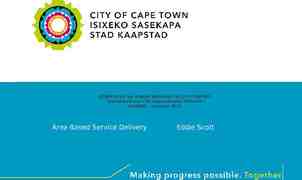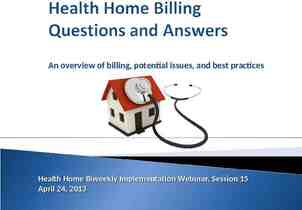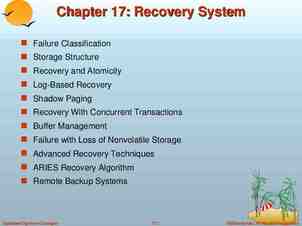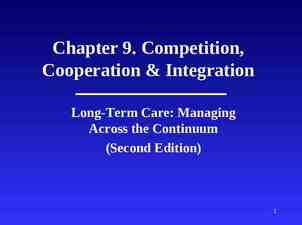MEDICATION ASSISTANCE, ADMINISTRATION AND RN DELEGATION Texas Assisted
51 Slides1,010.17 KB

MEDICATION ASSISTANCE, ADMINISTRATION AND RN DELEGATION Texas Assisted Living Association April, 2015

Objectives Understand the BON rule for RN delegation in AL— rule 225. State the requirements for RN delegation, including assessment, training, documentation, and supervision. Understand the AL regulations for medication assistance, supervision, and administration in AL. Understand the process for delegation of medication administration in assisted living.

The essence of delegation. “But in both (hospitals and private houses), let whoever is in charge keep this simple question in her head, (not, how can I always do this right thing myself, but) how can I provide for this right thing to be always done? Florence Nightingale

Definitions Client—term to indicate who will receive care—our resident Client’s Responsible Adult—CRA, an individual chosen by the client who is willing and able to participate in decisions about the overall management of the client’s healthcare Unlicensed Assistive Personnel—UAP, an individual not licensed as a healthcare provider Rule 225.4

Delegation—a registered nurse authorizes an unlicensed person to perform tasks of nursing care in selected situations and indicates that authorization in writing. Delegation is a process that includes the nursing assessment of a client in a specific situation, evaluation of the ability of the unlicensed persons, teaching the task, ensuring supervision of the unlicensed persons and re-evaluating the task at regular intervals. Rule 225.4 (6) Supervision—a process of directing, guiding, and influencing the outcome of an individual’s performance of an activity. Assign—describes the distribution of work that each staff member is responsible for during a given shift or work period. national council of state boards of nursing

Training—the process by which someone acquires knowledge and skills Consider . training is part of delegation but can occur without delegation (as in training for supervision and assistance with medications).

Stable and predictable—a situation where the client’s clinical and behavioral status is determined to be nonfluctuating and consistent. A stable and predictable condition involves long-term health care needs which are not recuperative in nature and do not require the regularly scheduled presence of an RN or LVN. Excluded by this definition are situations where the client’s clinical and behavioral status is expected to change rapidly or in need of the continuous assessment and evaluation of an RN or LVN. The condition of clients receiving hospice care in an independent living environment where deterioration is predictable shall be deemed to be stable and predictable.

Independent living environment—anywhere the client lives, works, attends school, or engages in activities in the community Home Group home Foster home Assisted living facility Adult day care center Day habilitation program School Rule 225.4 (9)

AL Regulation 92.11 a. 2. A. (2) An assisted living facility may provide skilled nursing services for the following limited purposes: coordinate resident care with an outside home and community support services agency or health care professional; (B) provide or delegate personal care services and medication administration, as described in this chapter; (C) assess residents to determine the care required; and (D) deliver, for a period not to exceed 30 days, temporary skilled nursing services for a minor illness, injury or emergency. (A)

Administrator’s Role Understand/support RN scope of practice Understand/support RN delegation rules Collaborate, trust, respect RN Ensure policies and procedures are in place Competency verification system—must document competency of staff to provide care, including meds before allowed to give care Staffing—ensure safe levels along with appropriate training for tasks Provide necessary resources for training and support of licensed and unlicensed staff

RN’s Role Follow the laws and rules as well as P&P Task within your scope of practice (and personal competency—you can’t delegate what you are not personally competent to perform ) Be accountable for: Proper assessment (225.6) Decision to delegate Proper documentation of assessment and decision Rationale for decision upon question by client/CRA Train, train, train Document, document, document

RN Accountability Is your “license on the line”? 225.5 RN Accountability A. The RN is responsible for proper performance of the assessment required by §225.6 of this title (relating to RN Assessment of the Client) and for the RN’s decisions made as a result of that assessment including determining that performance of a particular ADL or HMA for a particular client qualifies as not requiring delegation. B. The RN is responsible for documenting the delegation assessment and delegation decision(s), and must provide the rationale for the delegation decisions upon request of the client or the client’s responsible adult. When delegation decisions conflict or are in disagreement with the client or the client’s responsible adult, the RN should collaborate with the client or the client’s responsible adult through a dispute resolution process D. The RN’s accountability to the BON with respect to its taking disciplinary action against the RN’s license is met when the RN can verify compliance with this chapter. E. This chapter does not change a RN’s civil liability.

LVN’s Role Directed scope of practice—must have a licensed supervisor “Eyes on the ground” May assist and participate in training the UAP May help with supervision May intervene to correct inappropriate actions of the UAP

UAP’s Role Receptive to learning Accountability—accept delegation and carry out as instructed Understand the RN’s supervisory role Communicate—questions, concerns Recognize and report change of condition Cannot “re-delegate” a task to another UAP

Client/CRA’s Role Participate in the delegation decision and consent in writing Suggested wording for NSP: “Unlicensed staff to assist with and/or administer medications (or other delegated task)” Signing the NSP with this wording documents the agreement for the delegated task.

Questions to ask before delegating What is the task or job to be delegated? Are the expected results predictable? Does the task require on-going nursing assessment? To whom shall the task be delegated/--skill level and time Does the task involve critical thinking or nursing judgment? If the delegatee needs help, am I available to help?

5 rights of Delegation Right Task Right Circumstances Right Person Right Direction/Communication Right Supervision/Evaluation

Right Task Appropriate delegated task for a specific resident Does not require nursing judgment Delegable task Appropriate delegated task for a specific UAP Delegation of medications is resident-specific, taskspecific, and staff-specific.

Right Circumstances RN Assessment of the Resident Consider: Rule 225.6 the ability of the resident or CRA to participate in the decision and in the management/direction of the task. Adequacy/reliability of support system for resident/CRA Stable and predictable as related to delegated task Communication with resident/CRA Frequency of reassessment

While each element must be assessed, strength in one factor may compensate/offset a weakness in another factor. The assessment at this point does not require the RN to know either the specific UAP or the specific qualifications of the UAP or the competency of the UAP. Rule 225.6 (c)

Right Person Instruct and/or assess, verify and identify the UAP’s competency on an individual and client-specific basis. Remember that the LVN: May assist and participate in training the UAP May help with supervision May intervene to correct inappropriate actions of the UAP

Right Communication Communicate delegation decision on a residentspecific and UAP-specific basis. Specific communication includes: Instructions for performance of the task Reporting parameters and timelines Resident-specific instruction and limitation Expected results or potential complications (medication side effects or adverse effects). 4 C’s of communication—Clear, Concise, Correct, Complete

Right Supervision/Evaluation Supervise performance of specific task Monitor performance and provide feedback Ensure proper documentation

Assessment Evaluation Delegation Decision-Making Process Supervision Planning Delegation

Delegation Decision-making Process 5 W’s and H Who will perform the task? What task will be delegated? When should the task be performed? Where will the UAP perform the task? Why is the task being performed? How will the UAP perform the task? (specific instructions for specific resident)

Delegable Tasks ADLs or HMAs that require delegation Non-invasive and non-sterile treatments Collecting, reporting and documenting certain data Reinforcement of health teaching provided by the RN Insertion of an I & O catheter Irrigation of indwelling tubes, i.e.: Foleys or gtubes Rule 225.10

More delegable tasks Ventilator care or tracheal care including the instillation of normal saline and suctioning with oxygen Care of broken skin with a low infection risk Sterile procedures involving a wound or an anatomical site that could become infected Rule 225.10
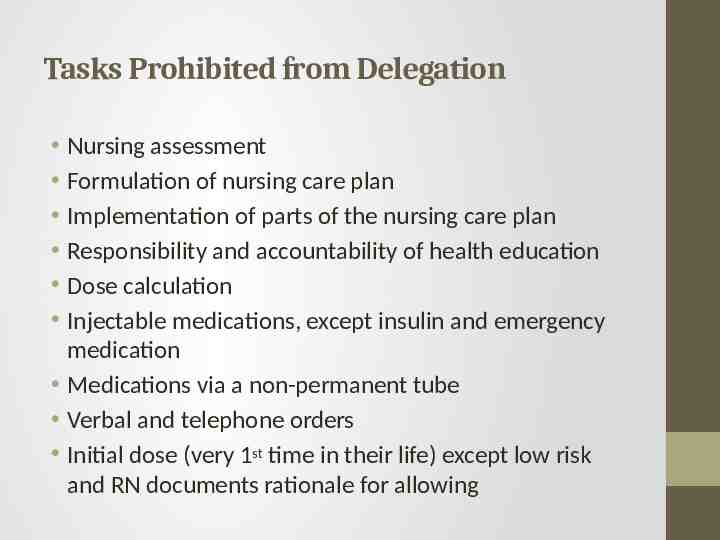
Tasks Prohibited from Delegation Nursing assessment Formulation of nursing care plan Implementation of parts of the nursing care plan Responsibility and accountability of health education Dose calculation Injectable medications, except insulin and emergency medication Medications via a non-permanent tube Verbal and telephone orders Initial dose (very 1st time in their life) except low risk and RN documents rationale for allowing

Delegation Delegation Instructions Priority of tasks Expected timelines Checkpoints for monitoring Conditions to report Completions of tasks Nurse’s role as delegator and supervisor Documentation

3 Choices Regarding Tasks Delegate a task because it can safely be performed by the UAP. Do not delegate the task because only a nurse can safely perform the task. Task is an ADL or HMA that does not require delegation and can be exempted from delegation because the client or CRA can direct and supervise the UAP (and agrees in writing). Rule 225.6-225.8
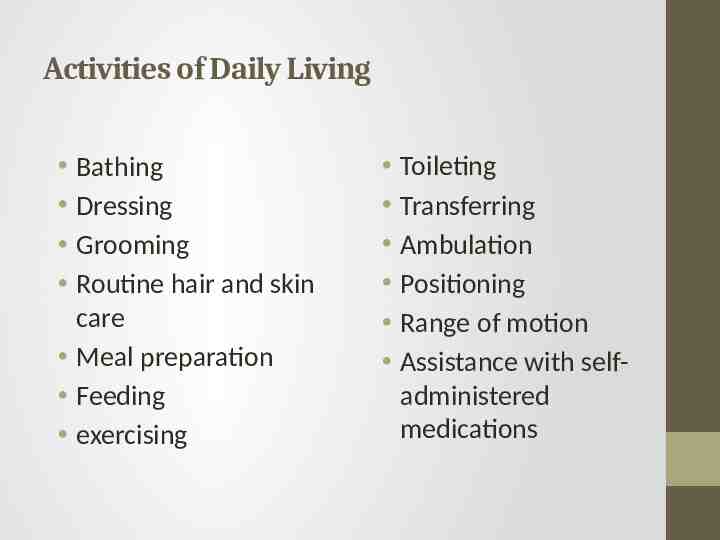
Activities of Daily Living Bathing Dressing Grooming Routine hair and skin care Meal preparation Feeding exercising Toileting Transferring Ambulation Positioning Range of motion Assistance with selfadministered medications
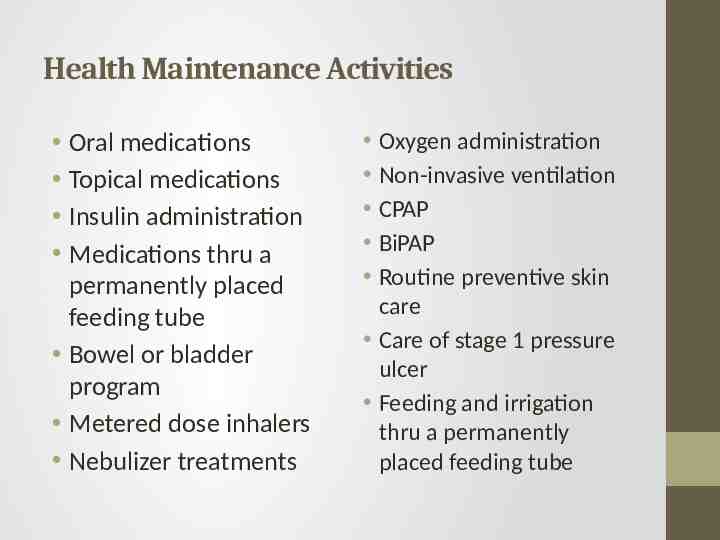
Health Maintenance Activities Oral medications Topical medications Insulin administration Medications thru a permanently placed feeding tube Bowel or bladder program Metered dose inhalers Nebulizer treatments Oxygen administration Non-invasive ventilation CPAP BiPAP Routine preventive skin care Care of stage 1 pressure ulcer Feeding and irrigation thru a permanently placed feeding tube
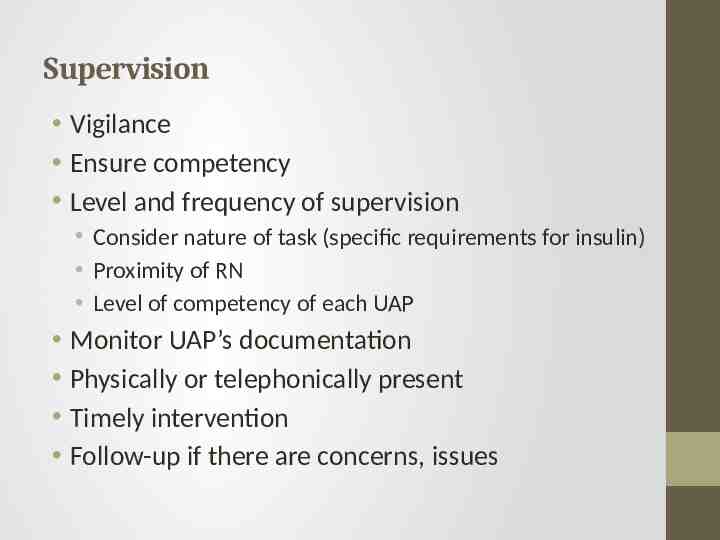
Supervision Vigilance Ensure competency Level and frequency of supervision Consider nature of task (specific requirements for insulin) Proximity of RN Level of competency of each UAP Monitor UAP’s documentation Physically or telephonically present Timely intervention Follow-up if there are concerns, issues
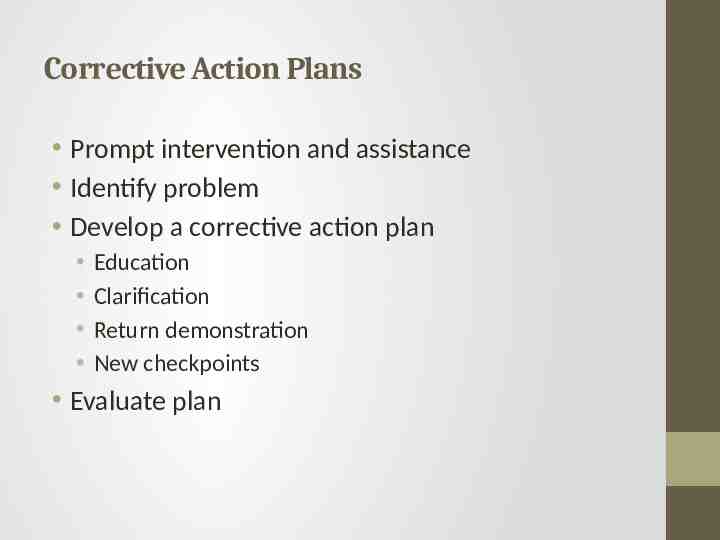
Corrective Action Plans Prompt intervention and assistance Identify problem Develop a corrective action plan Education Clarification Return demonstration New checkpoints Evaluate plan
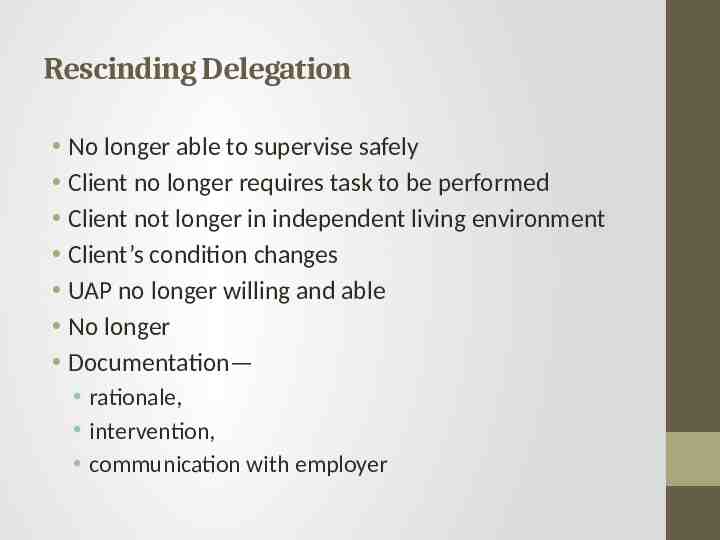
Rescinding Delegation No longer able to supervise safely Client no longer requires task to be performed Client not longer in independent living environment Client’s condition changes UAP no longer willing and able No longer Documentation— rationale, intervention, communication with employer
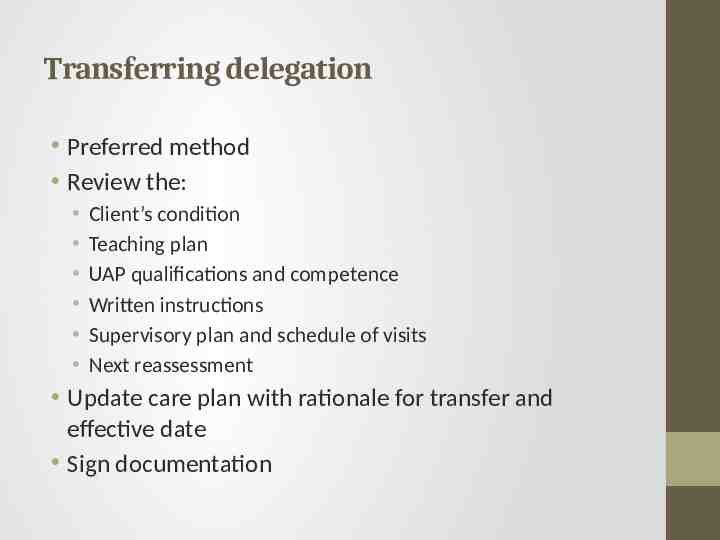
Transferring delegation Preferred method Review the: Client’s condition Teaching plan UAP qualifications and competence Written instructions Supervisory plan and schedule of visits Next reassessment Update care plan with rationale for transfer and effective date Sign documentation
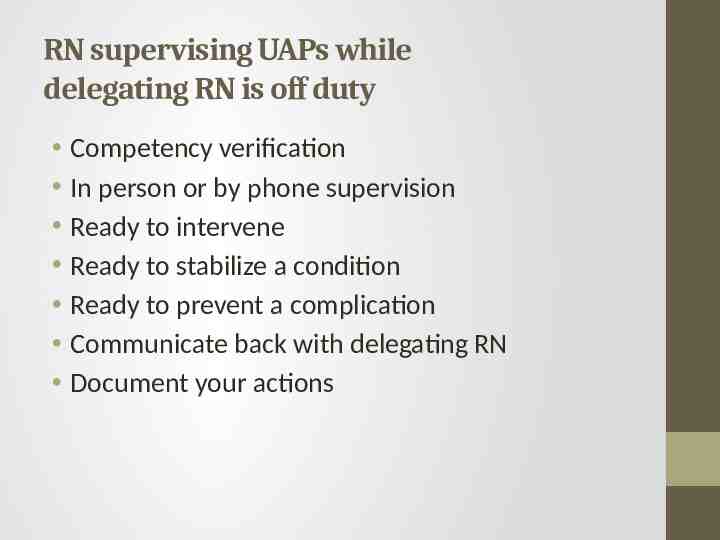
RN supervising UAPs while delegating RN is off duty Competency verification In person or by phone supervision Ready to intervene Ready to stabilize a condition Ready to prevent a complication Communicate back with delegating RN Document your actions
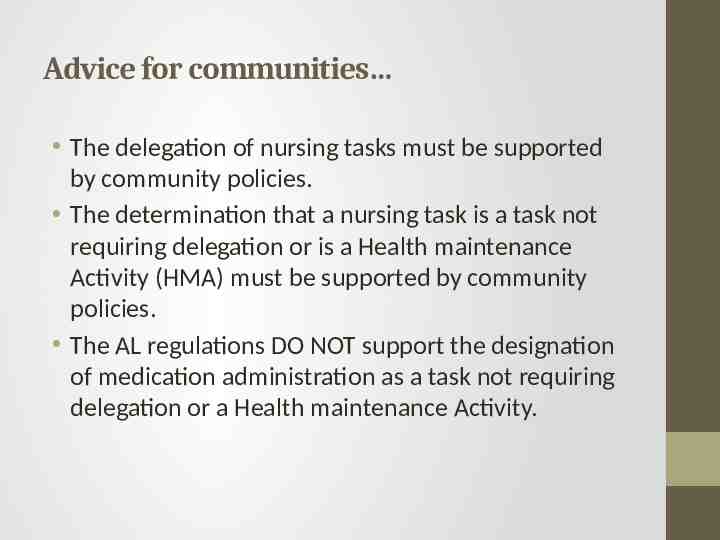
Advice for communities The delegation of nursing tasks must be supported by community policies. The determination that a nursing task is a task not requiring delegation or is a Health maintenance Activity (HMA) must be supported by community policies. The AL regulations DO NOT support the designation of medication administration as a task not requiring delegation or a Health maintenance Activity.
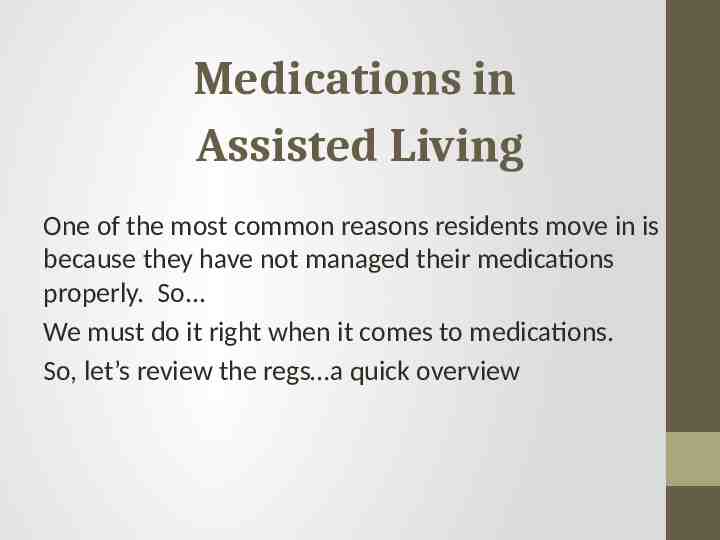
Medications in Assisted Living One of the most common reasons residents move in is because they have not managed their medications properly. So. We must do it right when it comes to medications. So, let’s review the regs a quick overview
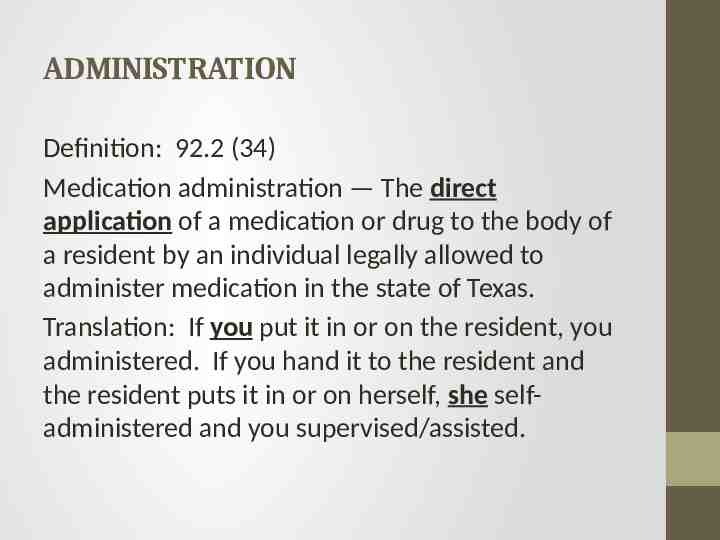
ADMINISTRATION Definition: 92.2 (34) Medication administration — The direct application of a medication or drug to the body of a resident by an individual legally allowed to administer medication in the state of Texas. Translation: If you put it in or on the resident, you administered. If you hand it to the resident and the resident puts it in or on herself, she selfadministered and you supervised/assisted.
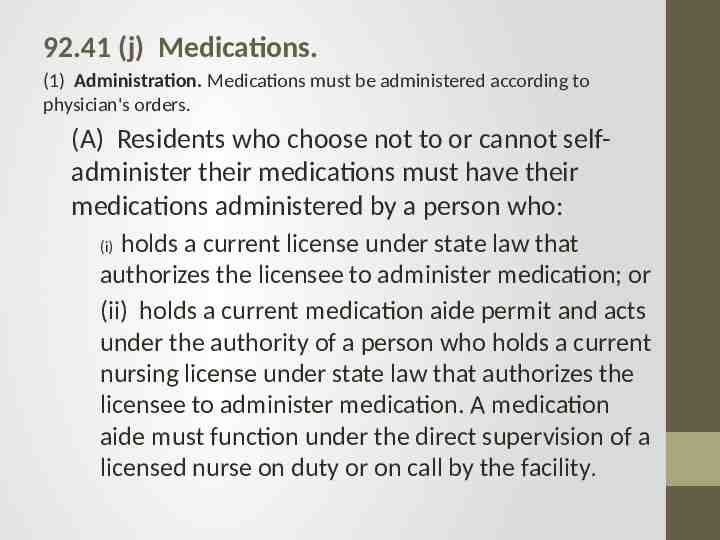
92.41 (j) Medications. (1) Administration. Medications must be administered according to physician's orders. (A) Residents who choose not to or cannot selfadminister their medications must have their medications administered by a person who: holds a current license under state law that authorizes the licensee to administer medication; or (ii) holds a current medication aide permit and acts under the authority of a person who holds a current nursing license under state law that authorizes the licensee to administer medication. A medication aide must function under the direct supervision of a licensed nurse on duty or on call by the facility. (i)
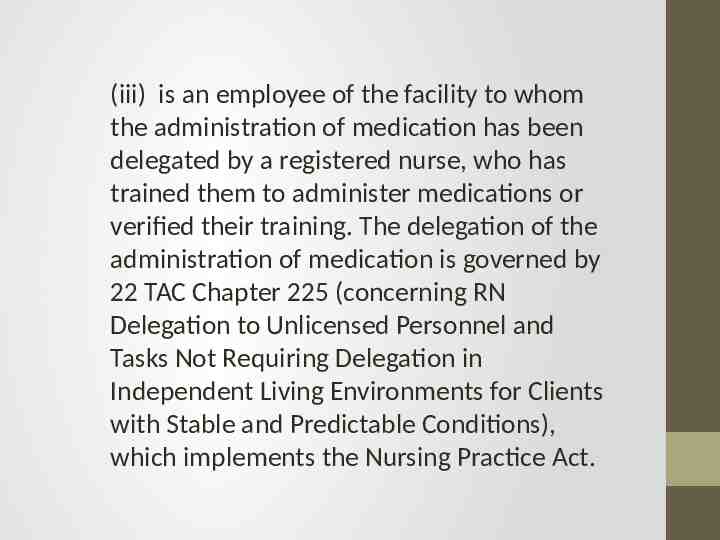
(iii) is an employee of the facility to whom the administration of medication has been delegated by a registered nurse, who has trained them to administer medications or verified their training. The delegation of the administration of medication is governed by 22 TAC Chapter 225 (concerning RN Delegation to Unlicensed Personnel and Tasks Not Requiring Delegation in Independent Living Environments for Clients with Stable and Predictable Conditions), which implements the Nursing Practice Act.
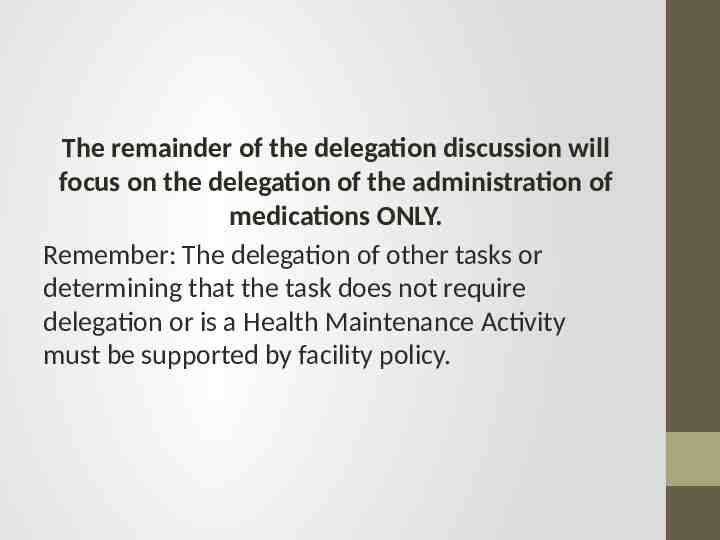
The remainder of the delegation discussion will focus on the delegation of the administration of medications ONLY. Remember: The delegation of other tasks or determining that the task does not require delegation or is a Health Maintenance Activity must be supported by facility policy.
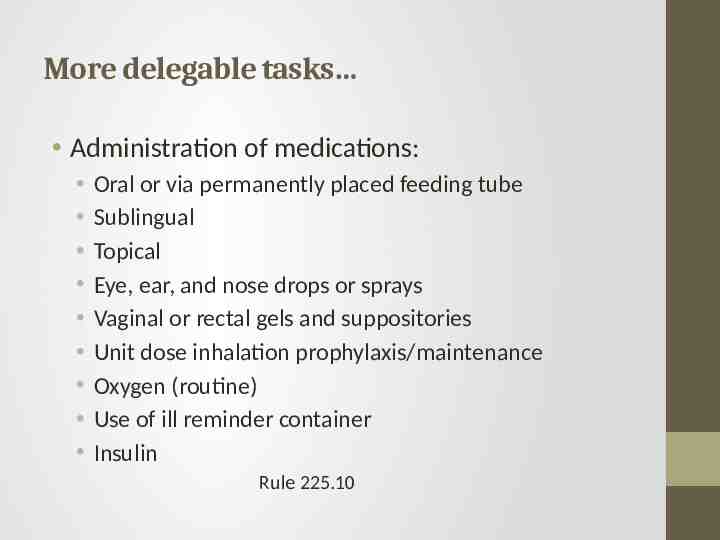
More delegable tasks Administration of medications: Oral or via permanently placed feeding tube Sublingual Topical Eye, ear, and nose drops or sprays Vaginal or rectal gels and suppositories Unit dose inhalation prophylaxis/maintenance Oxygen (routine) Use of ill reminder container Insulin Rule 225.10
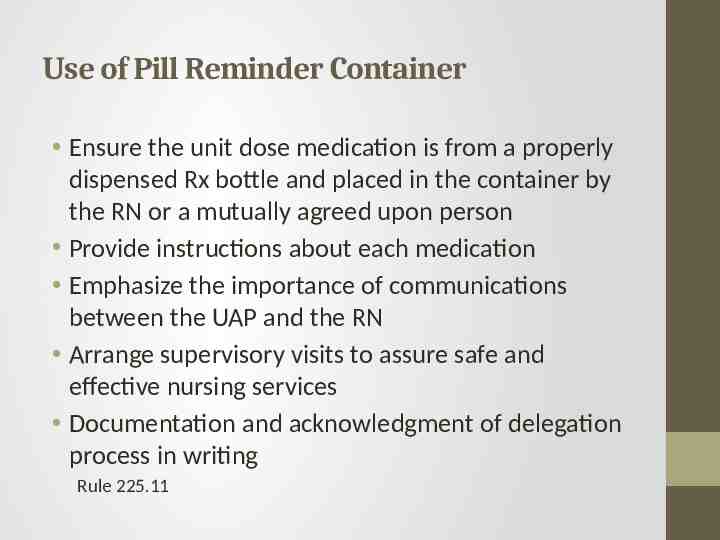
Use of Pill Reminder Container Ensure the unit dose medication is from a properly dispensed Rx bottle and placed in the container by the RN or a mutually agreed upon person Provide instructions about each medication Emphasize the importance of communications between the UAP and the RN Arrange supervisory visits to assure safe and effective nursing services Documentation and acknowledgment of delegation process in writing Rule 225.11
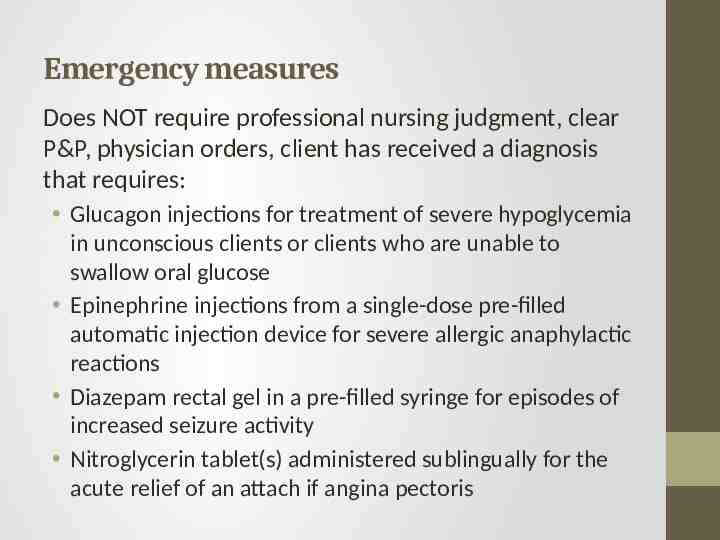
Emergency measures Does NOT require professional nursing judgment, clear P&P, physician orders, client has received a diagnosis that requires: Glucagon injections for treatment of severe hypoglycemia in unconscious clients or clients who are unable to swallow oral glucose Epinephrine injections from a single-dose pre-filled automatic injection device for severe allergic anaphylactic reactions Diazepam rectal gel in a pre-filled syringe for episodes of increased seizure activity Nitroglycerin tablet(s) administered sublingually for the acute relief of an attach if angina pectoris
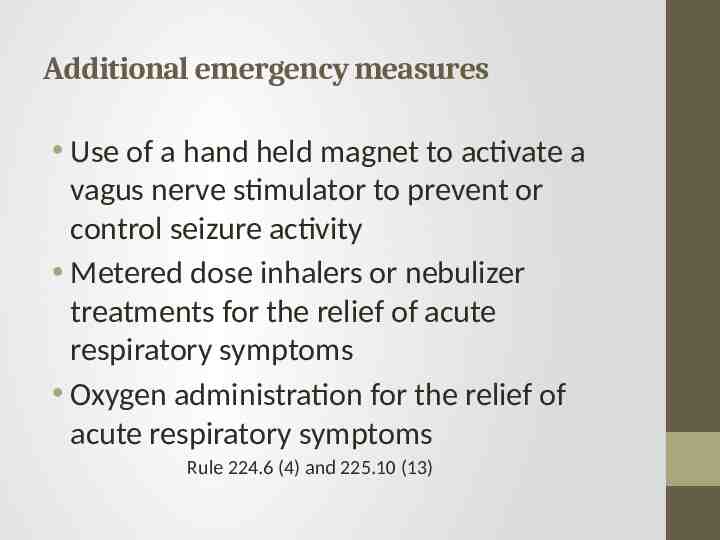
Additional emergency measures Use of a hand held magnet to activate a vagus nerve stimulator to prevent or control seizure activity Metered dose inhalers or nebulizer treatments for the relief of acute respiratory symptoms Oxygen administration for the relief of acute respiratory symptoms Rule 224.6 (4) and 225.10 (13)
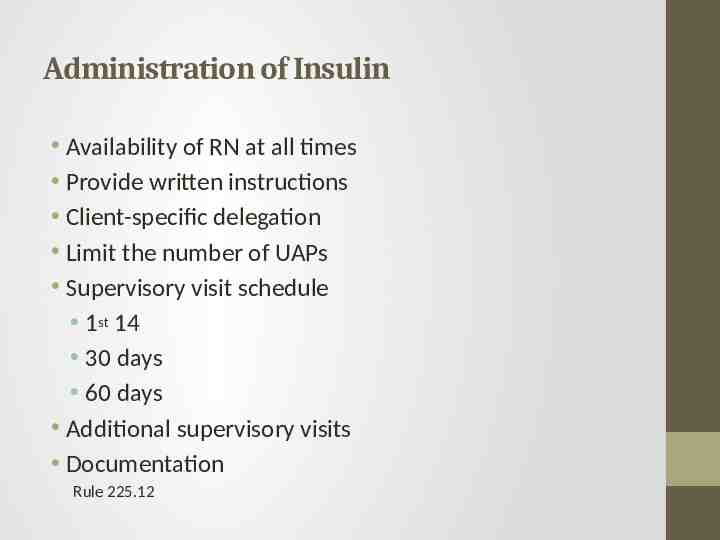
Administration of Insulin Availability of RN at all times Provide written instructions Client-specific delegation Limit the number of UAPs Supervisory visit schedule 1st 14 30 days 60 days Additional supervisory visits Documentation Rule 225.12
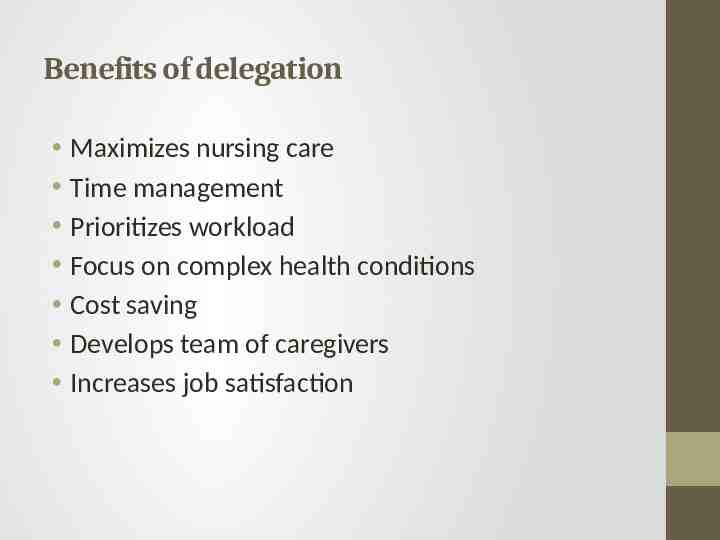
Benefits of delegation Maximizes nursing care Time management Prioritizes workload Focus on complex health conditions Cost saving Develops team of caregivers Increases job satisfaction
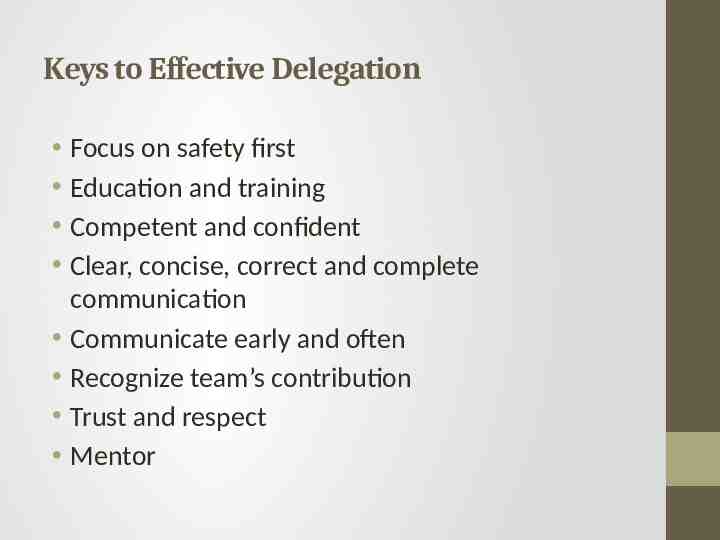
Keys to Effective Delegation Focus on safety first Education and training Competent and confident Clear, concise, correct and complete communication Communicate early and often Recognize team’s contribution Trust and respect Mentor
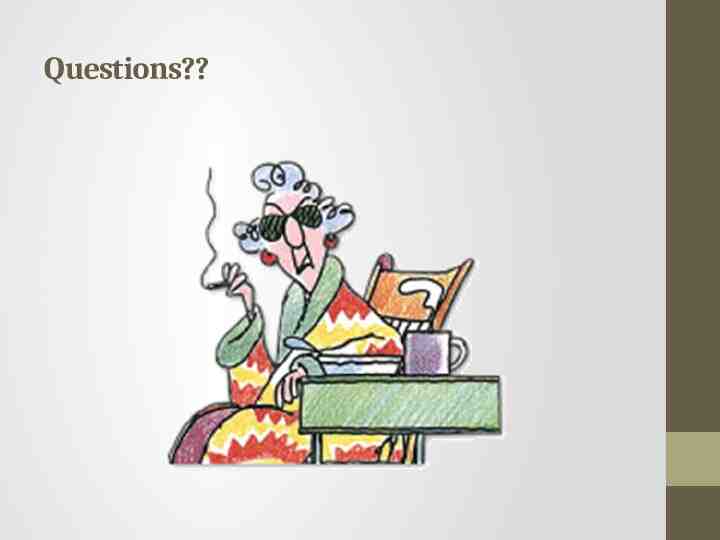
Questions?

